
Agenda | Feb 29,2020
Nov 14 , 2020.
The American civil rights movement leader Martin Luther King, Jr. was known for his powerful speeches that immortalised his name. One that may echo for posterity, across generations, meaningful to all societies in different places and eras was the statement he made during his time of despair inside Birmingham prison, Alabama, in the spring of 1963.
Says King: "We will have to repent in this generation not merely for the hateful words and the actions of the bad people but for the appalling silence of the good people."
There are few examples of how severely social capital can be eroded when political tensions spill over into conflict than the Ethio-Eritrean War that occurred for two years beginning in 1998. It bodes crucial lessons for Ethiopia’s current internal headache, where forces of the federal and Tigray regional governments have been engaging militarily for well over a week.
While the eventual breakaway of Eritrea from Ethiopia once the Dergueregime was defeated in 1991 was not without its challenges, the post-independence relationship between the two countries was impressively smooth. For a while. Indeed, following the referendum for nationhood, the late Prime Minister Meles Zenawi, the interim president then, visited Asmera where he was greeted by tens of thousands of cheering Eritreans. It had seemed to be the beginning of a new era in relations in the history of the continent.
Eritreans may have opted to form their own country, but the bond remained sturdy to the country its people have been a part of for at least four decades. The two countries continued to make use of the same currency, the borders were generously porous, and there were what then seemed to be promising efforts to harmonise trade and economic relations, such as the Asmera Pact. For all practical purposes, it had appeared essentially as a confederation of states. But it was under the surface a relationship held together by the converging interests of the ruling parties in both countries. Few had understood that once political capital wanes, the social aspect would take a similar hit.
Once war began between Ethiopia and Eritrea, and both governments ramped up narratives about how much of a menace the other was, it spelled trouble for citizens caught on either side of the Mereb River. It did not take long for an unjustified war to show how hideous it was going to get for civilians whose identity was believed to portray their political standing.
Already by September 1998, some four months after the start of the war, UN teams in Eritrea reported Ethiopia had deported over 20,000 people. The team indicated that a majority of these actually had Ethiopian citizenship. Their crime was being of the origin and having Eritrean legacy. Eventually, around 70,000 Eritreans and Ethiopians of Eritrean heritage were rounded up and expelled. The report by Human Rights Watch, a non-governmental humanitarian organisation, on the plight of individuals profiled because of their identity was harrowing.
“The government arbitrarily seized those of Eritrean descent, held them in harsh detention conditions and allowed no challenge to their expulsion,” it stated. “It divided families, forcibly separating many from spouses and children whose Ethiopian nationality was not challenged, and expropriated their properties.”
This episode in Ethiopia's recent history remains a stain. It was wrong, regrettable, and should not have happened had sane minds prevailed at the time. But most evidently, it was a story of bystanders who had refused to speak out on behalf of neighbours in distress, lest help.
It would only be tragic should this regrettable episode in Ethiopia's history be allowed to repeat itself, considering the widespread profiling of individuals that is currently taking place. There is a precedent for profiling of individuals in the emotional heat of uncertainty and conflict, such as now, when military operations are taking place in Ethiopia’s northern front. Individuals that are merely suspected of having sympathy for the other side become targets for the expression of anger, frustration and insecurity that is felt. History could be repeated unless a conscious effort is exerted to protect the rights and dignity of individuals that could face discrimination, disempowerment and disenfranchisement.
There are tragic examples of the failure to do this and the impulse to overreact in the heat of the moment.
The United States, during the time of one of its most respected leaders, Franklin D. Roosevelt, committed such a violation. He passed an executive order interning Japanese Americans in camps due to suspicions that they may have sympathy for Imperial Japan, which had bombed Pearl Harbour shortly before. An overwhelming number of the 120,000 that were interned were second and third-generation Japanese-Americans, citizens that had never known another country but the United States. The violation of their rights based solely on suspicion is one of the most conspicuous blights on American democracy.
Conflict in a country such as Ethiopia, where politics is highly ethnicised, can produce the same effects. If conflicts along identity fault lines have been the primary feature of political violence over the past couple of years, there is little reason to believe that discrimination would not occur when there is armed conflict and emotions are high. There is too strong a case to be made for protection and sympathy to be afforded to those that may face persecution for the simple fact they speak a certain language or hail from a particular region of the country.
There are no illusions as to the likelihood of such profiling taking place. Prime Minister Abiy Ahmed (PhD) has indicated this recently.
“Let’s be the keepers of our brothers in each of our neighbourhoods to our Tigrayan compatriots so they do not face any kind of discrimination,” he stated last Tuesday.
This is an assurance that his administration should live by. It needs to offer clear and consistent messaging that discrimination and profiling based on a person’s identity cannot be tolerated and perpetrators within government or outside would be prosecuted to the full extent of the law. His administration needs to walk the talk.
The importance of hammering on this issue is all the more crucial considering that discrimination and disempowerment do not even have to be government-directed. Members of the public can internalise a warped version of the official narratives of events and would be influenced to express it through attempts to disfavour individuals based solely on their identity. This is precisely the externality of conflict that should be mitigated by the concerted efforts of government, civil society and the public.
In the best-case scenario, political differences should be addressed without conflict. War, except in the rarest of cases, is unjustified. But at least until peace descends in the country, a hand should be extended to those that currently find themselves in an awkward position - to put it lightly - simply because they have a certain identity that seems to betray their politics.
Protecting “our compatriots” from discrimination and disenfranchisement should be a principle the government and the public should live up to. Bystanders' inactions in the face of friends and neighbours seeking help in times of desperation and despair has been seen in many societies, and at different times, including Ethiopia.
When the stories of individuals being identified and rounded up because of their assumed profiling begin to smear into daily conversations, it is fitting to remember Jean Amery, an Austrian-born essayist, for his words: "The expectation of help, the certainty of help, is indeed one of the fundamental experiences of human beings."
PUBLISHED ON
Nov 14,2020 [ VOL
21 , NO
1072]

Agenda | Feb 29,2020
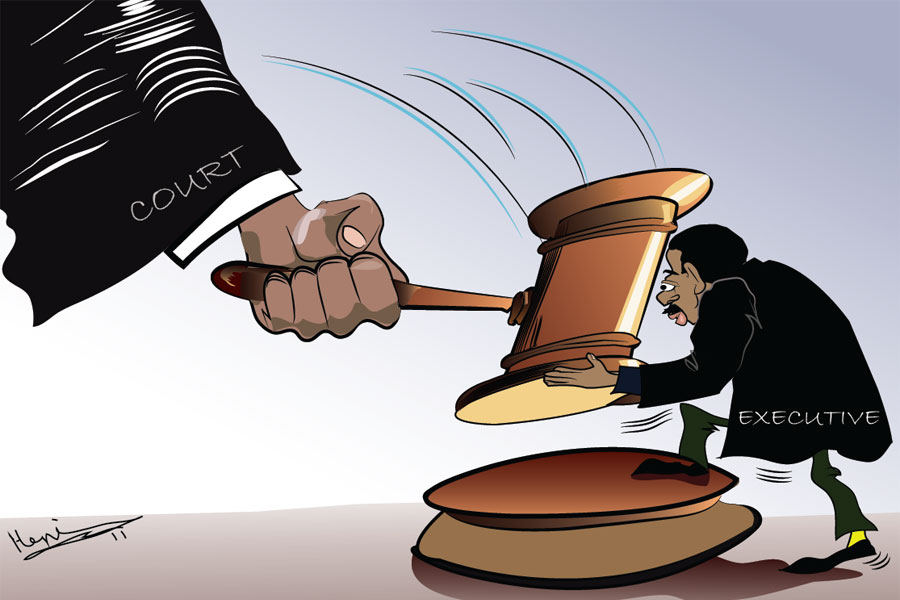
Editorial | Feb 09,2019

Radar | Jun 18,2022
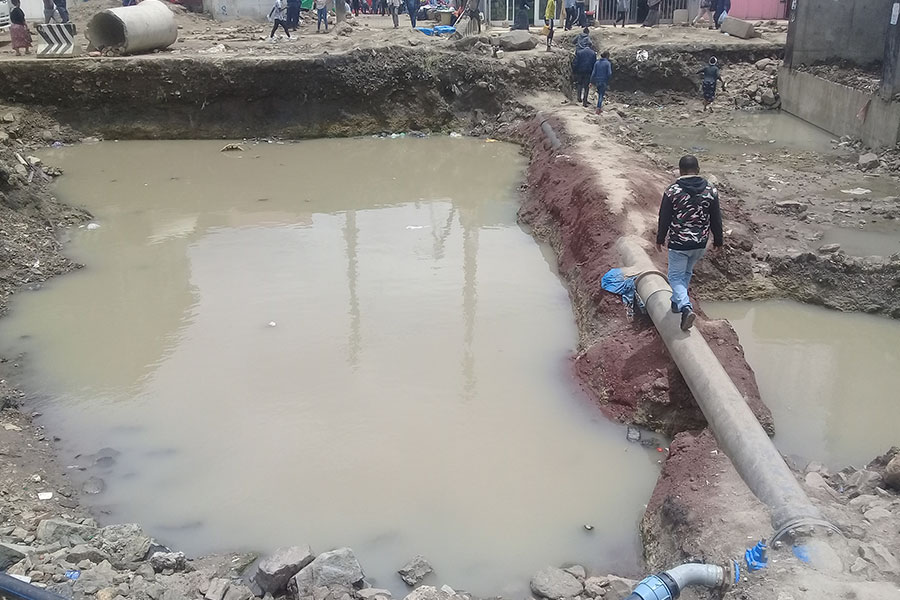
Radar | Jul 31,2021

Viewpoints | Feb 27,2021

Fortune News | Aug 17,2019

Sunday with Eden | Nov 19,2022

My Opinion | Jul 13,2019

My Opinion | Dec 19,2018

Viewpoints | May 08,2021

Photo Gallery | 96721 Views | May 06,2019

Photo Gallery | 88900 Views | Apr 26,2019

My Opinion | 67161 Views | Aug 14,2021

Commentaries | 65757 Views | Oct 02,2021

Feb 24 , 2024 . By MUNIR SHEMSU
Abel Yeshitila, a real estate developer with a 12-year track record, finds himself unable to sell homes in his latest venture. Despite slash...

Feb 10 , 2024 . By MUNIR SHEMSU
In his last week's address to Parliament, Prime Minister Abiy Ahmed (PhD) painted a picture of an economy...

Jan 7 , 2024
In the realm of international finance and diplomacy, few cities hold the distinction that Addis Abeba doe...

Sep 30 , 2023 . By AKSAH ITALO
On a chilly morning outside Ke'Geberew Market, Yeshi Chane, a 35-year-old mother cradling her seven-month-old baby, stands amidst the throng...
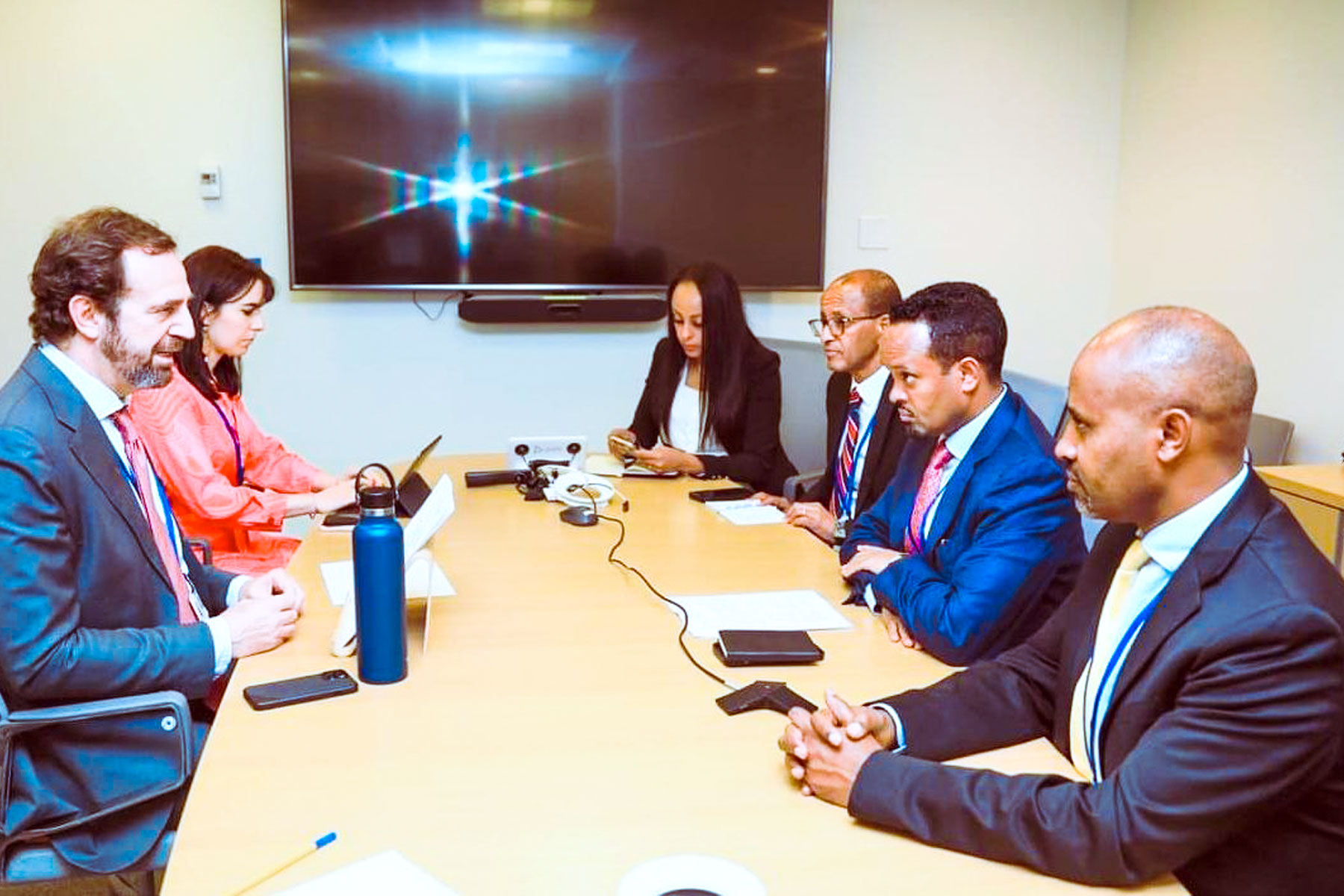
Apr 20 , 2024
Ethiopia's economic reform negotiations with the International Monetary Fund (IMF) are in their fourth round, taking place in Washington, D...
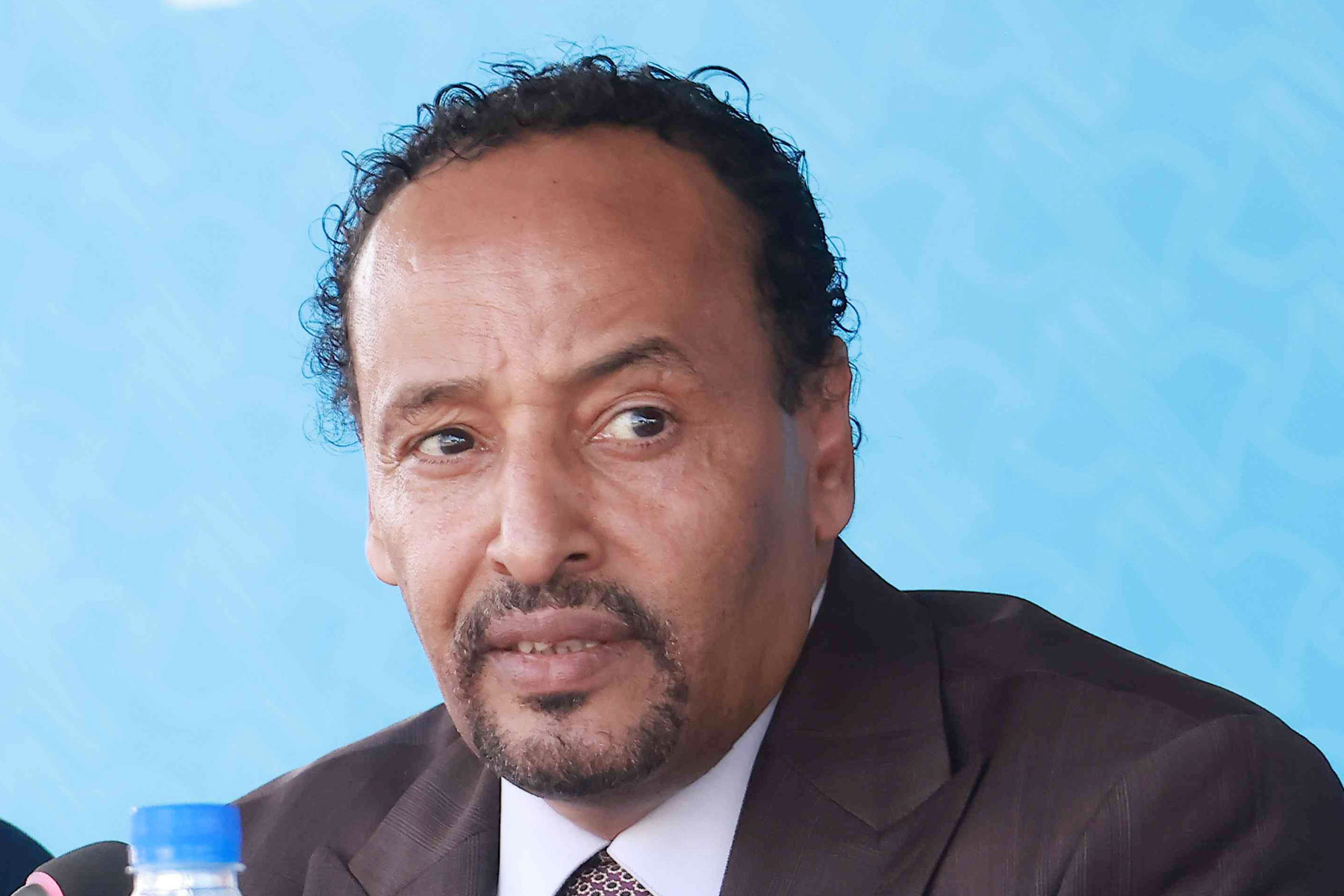
Apr 20 , 2024 . By BERSABEH GEBRE
An undercurrent of controversy surrounds the appointment of founding members of Amhara Bank after regulat...
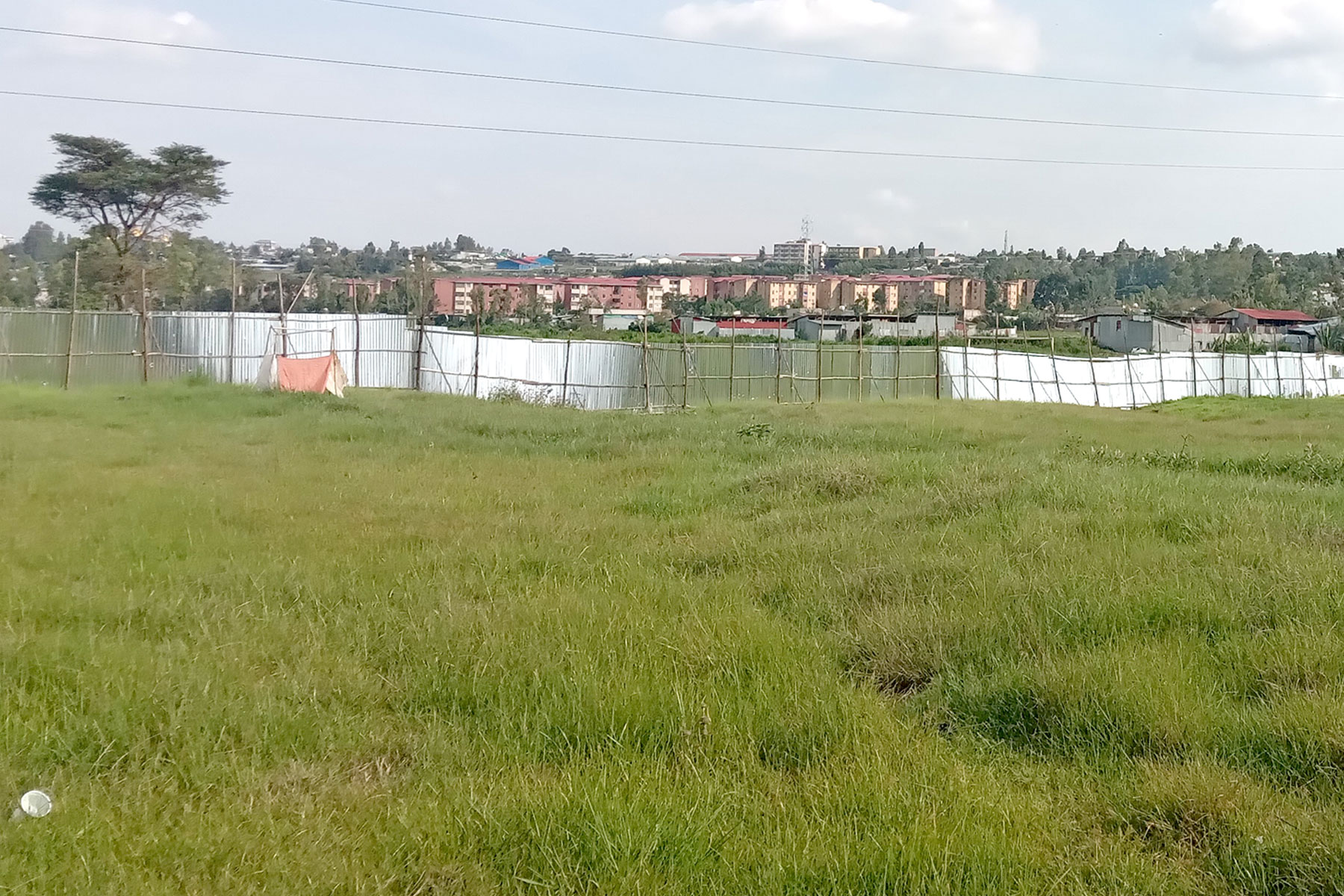
An ambitious cooperative housing initiative designed to provide thousands with affordable homes is mired...

Apr 20 , 2024 . By AKSAH ITALO
Ethiopia's juice manufacturers confront formidable economic challenges following the reclassification of...